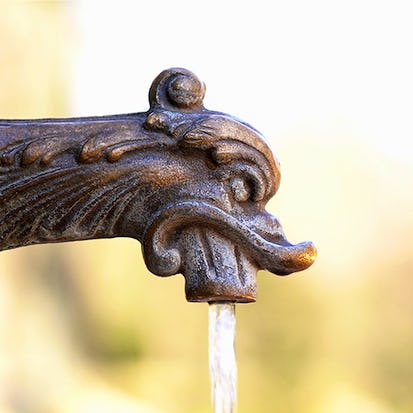- Level Foundation
- Duration 4 hours
- Course by Politecnico di Milano
-
Offered by

About
One of the most obvious claims in our everyday life is the importance of water, often called the blue gold. Anyway, we are often incapable of shifting this importance in tangible actions aimed at protecting this resource and optimizing its use. Past and present anthropic pressure has heavily impaired fresh water, usually supplied for drinking water production. Water utilities and water-treatment practitioners were unprepared to effectively face the challenge of a growing high-quality water demand, especially in climate change scenarios. We need to think out of the box, creating multi-disciplinary panels of experts able to exploit the advances in chemistry, environmental engineering, and ICT to effectively join human health protection and economic and social development. In this sense, stakeholders’ involvement is essential to success. This MOOC wants to communicate the challenge of protecting water and then human health from chemical and microbiological hazards, as well as the multidisciplinarity required by this challenge by providing some key elements about water quality, protection and remediation, sustainable drinking water production, online monitoring, and finally advanced computing for process control. Moreover, a broader perspective to investigate the experience of water supply will be introduced. For instance, participants will be invited to observe and understand people’s practices around drinking water, exploring approaches and tools derived from service and product design to support behavioral change. It fulfills SDG6, covering almost all its set targets, but also some relevant targets in SDG11, SDG12, and SGD15, considering the strict connection among safe water provision, robust cities/societies development, and sustainable consumption.Modules
A comprehensive integrated perspective
5
Videos
- The water behind us: contamination sources and prediction modeling
- Emerging contaminants in drinking water and food – Two examples: PFAS and Bisphenol A
- Risk assessment to address the change: how a probabilistic approach can help decide
- Drinking water quality and risk: false myths to dispel
- ASAP project: participated paths and behavioral change
Weekly Quiz
1
Assignment
- Quiz
Groundwater remediation
2
Videos
- Technologies to deal with groundwater novel issues
- Sustainability in groundwater remediation
Drinking water production
3
Videos
- The drinking water production chain: available technologies
- Materials in contact with water as possible contamination source
- New eco-designed materials for water treatment
Weekly Quiz
1
Assignment
- Quiz
Sensors and electronics for water quality assessment
5
Videos
- New tools for flexible and resilient monitoring campaigns
- Soft sensors for the development of early warning systems
- Sensors and Electronics for Distributed Water Quantity and Quality Wireless Monitoring
- The Dirty Sensing project: an inline pervasive monitoring tool for pipes fouling
- Computational Fluid Dynamics (CFD) for reactor modelling
Weekly Quiz
1
Assignment
- Quiz
Auto Summary
Dive into the essential realm of water conservation with our course, "Water: an Essential Resource," offered by Coursera. This comprehensive program is rooted in the Science & Engineering domain and is expertly designed to address the critical importance of water, often dubbed the "blue gold." Led by knowledgeable instructors, this course spans 240 hours and delves into the multifaceted issues surrounding water quality, protection, and sustainable management. It focuses on the intersection of chemistry, environmental engineering, and information and communication technology (ICT) to tackle the growing demand for high-quality water amidst the challenges posed by climate change. Participants will gain insights into protecting water from chemical and microbiological hazards and explore sustainable drinking water production, online monitoring, and advanced computing for process control. Additionally, you will investigate the broader experience of water supply, observing and understanding people's practices around drinking water and exploring tools derived from service and product design to support behavioral change. The course aligns with the United Nations Sustainable Development Goals (SDGs), particularly SDG6, and touches on relevant targets in SDG11, SDG12, and SDG15, highlighting the interconnectedness of safe water provision, robust city development, and sustainable consumption. Whether you are starting your journey or looking to advance your expertise, the course offers flexible subscription options through the Starter and Professional plans, catering to a diverse audience, including students, professionals, and stakeholders in water management and environmental sustainability. Embark on this foundational course to equip yourself with the knowledge and skills needed to protect this vital resource and contribute to global water sustainability efforts.

Manuela Antonelli


